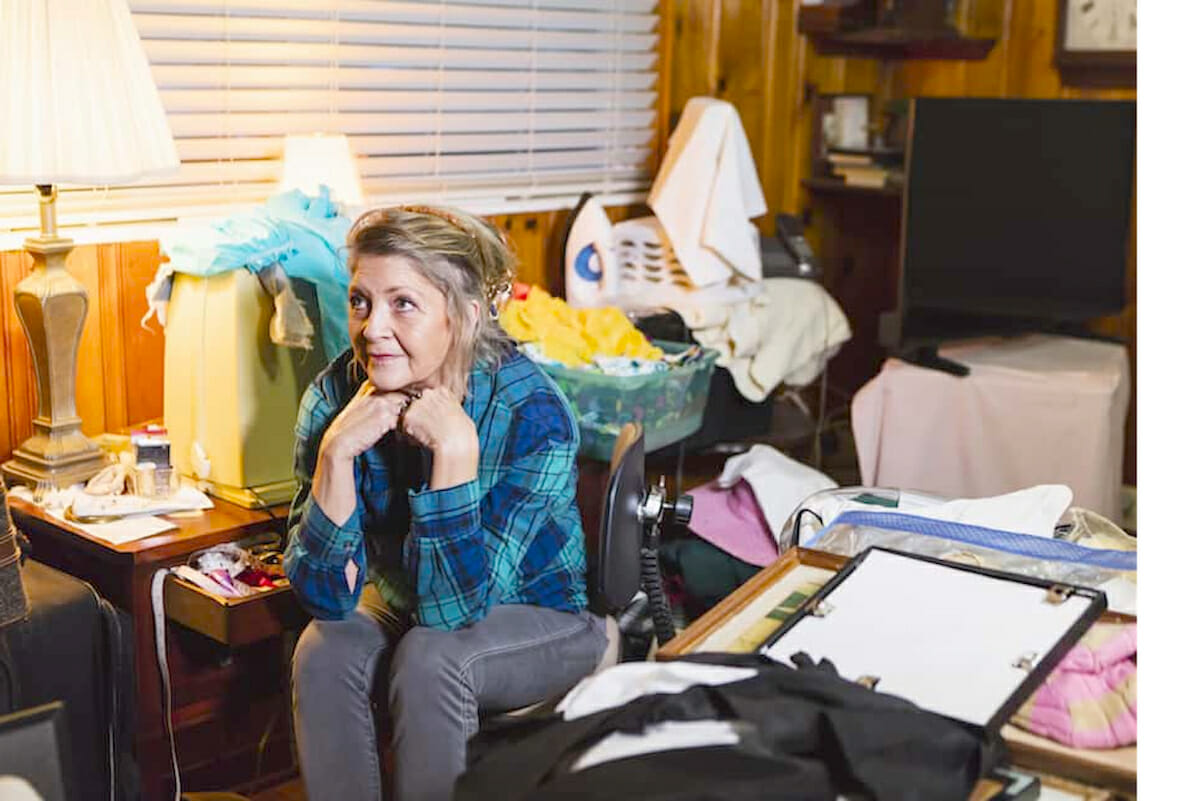What you need to know
Diogenes was a Greek philosopher who lived in a barrel in the 4th Century. Diogenes syndrome happens when a person does not take care of themselves or their surroundings, leading to poor hygiene and possibly some health and social problems. It often occurs with other conditions, such as dementia.
People with the condition often show signs of severe self-neglect, social isolation, and hoarding. They may live in unsanitary conditions. The person does not make a conscious decision to do this.

Views on self-hygiene and safety vary can between people and cultures. As a result, many of the symptoms of Diogenes syndrome can also be difficult to assess and treat objectively. However, a person with this condition may be at risk of harm from poor hygiene or self-neglect.
As Diogenes syndrome usually occurs with other conditions and there is little research about it, the current Diagnostic and Statistical Manual of Mental Disorders 5th Edition, (DSM V) does not list it as a psychiatric condition.
Men or women of any age and socioeconomic status can have Diogenes syndrome, but it usually appears as a behavioral disorder in older people. Research suggests that it is most common among people with average intelligence, who are over 60 years, and who live alone. Around 0.05 percent of people aged 60 years and older may have Diogenes syndrome. It is considered rare, but there is a lack of research about its prevalence.
Diogenes syndrome can be primary or secondary.
Primary: No other existing medical condition triggers the condition.
Secondary: The syndrome results from another mental health disorders.
Other names for Diogenes syndrome include senile or severe social breakdown syndrome, self-neglect syndrome, senile squalor syndrome, and messy house syndrome.
Symptoms: Symptoms vary, but a cluster of common features may be present, including signs of self-neglect. These include:
poor insight or understanding of self-hygiene, public health, or safety
distrust of society or strangers
paranoia or general suspiciousness
aloofness or detachment
extreme social anxiety
obsessive-compulsive tendencies
excessive hoarding or collecting of household items and waste
unsanitary or unsafe living conditions
poor nutrition or diet
unwillingness to accept outside help or intervention
fear or distrust of medical professionals and settings
hostility and aggression towards others
a distorted concept of reality
skin conditions due to poor hygiene, such as dermatitis passivata
A person with Diogenes syndrome can develop a skin condition called dermatitis passivata, where a horny crust develops over the skin. This is usually due to a lack of regular washing.
Another complication that doctors have found is poor oral hygiene, which can lead to dental decay and halitosis.
Hoarding and Diogenes syndrome: Researchers have described Diogenes syndrome as “a special manifestation of hoarding disorder.”
The home of a person with Diogenes syndrome can become so unclean and unhygienic that others from a similar cultural background would consider it necessary to clean and clear the environment. Hoarding can be a public health hazard as it attracts insects and rodents. The buildup of possessions and trash can also pose a fire hazard and make it difficult for the person to escape if a fire occurs.
Because Diogenese syndrome often affects older people, research suggests that dementia might be present in 15 percent of people with the condition, but this is not the only cause.
Causes: Research is still being conducted to improve understanding of Diogenes syndrome. Most of what people know about the condition comes from psychological case studies. Some sources estimate that at least half of all cases occur in people without prior mental health conditions.
When there is no other medical condition, scientists suggest that Diogenes syndrome may be a stress reaction, resulting from a traumatic event, such as the death of a loved one. In times of distress and grieving, everyday activities like personal care tend can become disrupted, or a person may overlook them. Lack of self-care, extreme social isolation, and neglect are what tend to make Diogenes syndrome different from hoarding.
Due to the lack of specific research, there is a poor understanding of the health, social, and mental complications related to Diogenes syndrome. However, research has shown that people with the syndrome are at risk of having a shorter lifespan.
Treatment: There is no formal diagnosis or treatment plan for Diogenes syndrome.
Some studies recommend compiling complete medical and psychological history for the individual and performing a physical exam, blood screening, and organ function tests to work out a baseline of health.
There may also be:
imaging tests to rule out other conditions that may cause similar symptoms
personality assessments, which may shed light on the root cause of the syndrome
Medications and counseling: There are currently no medications or therapy options specifically for managing Diogenes syndrome.
Medications for other conditions may help alleviate symptoms, such as paranoia or mania.
Psychological factors are also important to consider, as they can trigger the syndrome or cause it to continue. Intensive psychological therapy or counseling may help some people.
A person with Diogenes syndrome tends to neglect their own physical needs, including health and hygiene. They may also engage in hoarding behavior.
The individual will often not be keen to see a doctor or seek help, but family and friends can encourage them to do so. However, this must be done with sensitivity.
Source:https://www. medicalnewstoday.com/ articles/314595?utm_ source=Sailthru%20 Email&utm_medium=Email&utm_ campaign=MNT%20Daily%20 News&utm_content=2022-03- 12&apid=37763034&rvid=3424e 32faa971ce2c1b02d01eed1022831 fc564614ad3f53b1cc99363570ba 22#causes
Exclusive content from CARE magazine











